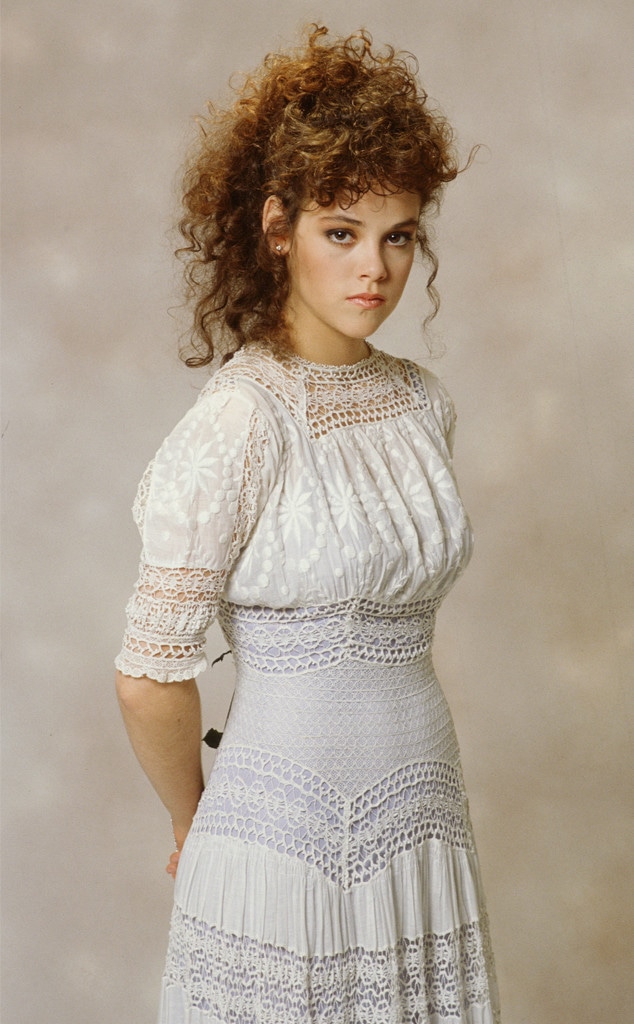On the morning of July 18, 1989, the life of 21-year-old rising actress Rebecca Schaeffer was tragically cut short by a stalker she had never truly known. Shot at the doorstep of her West Hollywood apartment, Schaeffer’s murder not only shocked Hollywood but also changed the way the public and legal system viewed celebrity privacy and stalking.
Rebecca Schaeffer was best known for her role in the television sitcom My Sister Sam, where she starred alongside Pam Dawber. Young, bright, and full of promise, Schaeffer embodied the quintessential American dream: small-town girl moves to Hollywood and finds success in the entertainment industry. However, her fame made her a target for someone with far darker intentions.

Her killer, Robert John Bardo, was a 19-year-old fan who had developed an unhealthy obsession with Schaeffer over the course of three years. Before fixating on her, Bardo had shown similar obsessive tendencies toward child peace activist Samantha Smith, who died in a plane crash in 1985. After Smith’s death, Bardo’s focus shifted. He began writing fan letters to Schaeffer, and to his amazement, she responded to one. This small gesture, innocent on her part, would become the foundation of his fantasy connection with her.
In 1987, Bardo made his first trip to Los Angeles, hoping to meet Schaeffer on the set of My Sister Sam. Security at Warner Bros. Studios turned him away. A month later, he returned with a knife, but was again stopped by guards. These failures did not discourage him for long. He returned to Tucson, Arizona, but his obsession with Schaeffer never fully faded, even as it temporarily shifted toward other celebrities like pop stars Tiffany, Debbie Gibson, and Madonna.

In 1989, Bardo saw Schaeffer in the film Scenes from the Class Struggle in Beverly Hills. In one scene, she appeared in bed with another actor. Enraged and jealous, Bardo saw this as a betrayal, accusing her of “becoming another Hollywood whore.” This moment crystallized his delusion. He decided that Schaeffer needed to be punished.
Bardo’s actions were disturbingly calculated. He learned from another stalker’s case—that of Arthur Richard Jackson, who attacked actress Theresa Saldana in 1982—that it was possible to track down a celebrity’s address using a private investigator. Bardo paid a Tucson-based detective agency $250, which obtained Schaeffer’s home address through California’s Department of Motor Vehicles (DMV) records, a chillingly easy feat at the time. With the help of his brother, he acquired a Ruger GP100 .357 revolver.

Bardo made his third and final trip to Los Angeles with deadly intentions. He wandered around Schaeffer’s neighborhood, confirming her address by asking passersby. On the morning of July 18, 1989, Schaeffer was at home preparing for an audition for The Godfather Part III. She was expecting a script delivery, so when Bardo rang the doorbell, she answered. He showed her the autograph and letter she had previously sent him. The two had a brief conversation, during which she kindly asked him not to come back. He left.
But Bardo was not done. After eating breakfast at a nearby diner, he returned about an hour later. When Schaeffer opened the door again, Bardo later recalled she had “a cold look on her face.” Without hesitation, he pulled out his revolver and shot her in the chest at point-blank range. She reportedly uttered “Ouch” and collapsed, only managing to say “Why? Why?” before losing consciousness. Schaeffer was rushed to Cedars-Sinai Medical Center, but doctors were unable to save her. She was pronounced dead just 30 minutes after her arrival.

Rebecca Schaeffer’s murder sparked outrage across the nation and initiated critical changes in both legal practices and public awareness surrounding stalking and privacy. At the time, it was alarmingly easy to obtain a person’s address through DMV records, something Bardo exploited with ease. In the wake of the tragedy, California quickly passed the nation’s first anti-stalking laws. By 1990, the federal government and other states followed suit, enacting stricter measures to protect individuals from stalking and harassment.
The case also highlighted the need for stricter privacy protections for public figures. The DMV and other agencies began rethinking how personal information could be accessed. Furthermore, Schaeffer’s death prompted the entertainment industry to invest more heavily in private security and to take fan threats more seriously.

Robert John Bardo was arrested the next day while wandering on a highway in Tucson, ranting about his crime. He confessed and was eventually convicted of first-degree murder in a trial that focused heavily on his mental health and obsessive tendencies. He was sentenced to life in prison without the possibility of parole, where he remains to this day.
Rebecca Schaeffer’s legacy extends far beyond her brief career in television. Her tragic death became a turning point in the conversation around stalking, celebrity safety, and privacy laws in the United States. It served as a painful wake-up call that fame, even at its most innocent and well-meaning, can attract dangerous attention.

Schaeffer’s parents, devastated by the loss of their only child, turned their grief into advocacy. Her mother, Danna Schaeffer, became a vocal activist pushing for better protections for stalking victims and played an instrumental role in influencing national legislation. Their work, along with public outrage, ensured that Rebecca’s death would not be in vain.
Over three decades later, her story remains a sobering reminder of the dark side of fame and the critical importance of safeguarding personal privacy. It also underscores the psychological complexities of stalking and the need for early intervention in cases where obsession crosses into dangerous territory.

Rebecca Schaeffer’s bright future was stolen far too soon. But through the legal and cultural reforms that followed her death, she left a lasting impact that has helped protect countless others from similar fates.